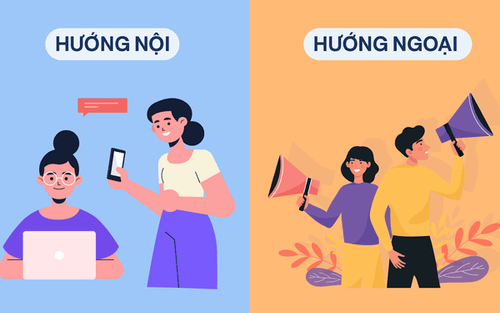This is an automatically translated article.
The term "introversion" was coined by Swiss psychiatrist and psychoanalyst Carl Jung. It describes a personality that focuses on inner feelings rather than external events. Introvert traits are not always recognized as positive because they are so introspective, sensitive, and subtle. However, introversion with a similar focus on emotions and the lateral world can provide significant benefits.
1. Introverts: Traits
Introverts prefer time to themselves. The idea of being home alone is exciting for introverts. The times of the day are important to an introvert's health and well-being. Whether you simply want to take some time off or engage in an activity, being alone is a spiritual release. Introverts often enjoy reading, gardening, crafting, writing, playing games, watching movies, or doing any other activity that is done alone.
What is an introvert? While extroverts won't miss a date or meal with friends, introverts know when they're low on energy and need to recharge to be able to engage in extravert activities. It doesn't mean that all introverts will turn down these meetings, but they will know how to accept and decline appropriately given their circumstances and actual conditions
Introverts will enjoy working more alone. If a group project leaves you feeling overwhelmed or disgusted, you may be an introvert. Introverts often perform their best jobs when they work alone. Independence allows introverts to focus deeply and produce high-quality work, and that doesn't mean introverts don't work well with others; they just prefer to retreat and focus on the task at hand, rather than navigating the social side of working in a team.
Introverts have a close circle of friends and like it that way. We shouldn't mistake an introvert's small circle of friends as a sign that they can't make friends or don't enjoy socializing. However, they enjoy talking to people and getting to know other people, and they also enjoy the solitude of a small group of friends. According to a study, high-quality relationships are the key to happiness for introverts.
Introverts are introverted and curious. You may find yourself daydreaming or working in your head long before devising a plan of action or lifting a finger to change anything. Introverts have a very active internal thought process, which also leads them to self-reflection and research. Introverts focus on pursuing their interests and feel prepared and well-read.
Introverts prefer writing to speaking. Often introverts are more comfortable writing their thoughts down than speaking, especially when you're unprepared. And introverts also prefer to think about their reactions because your communication style is focused and caring. You can continue the conversations, but if decisions are necessary, you may want more time to weigh and weigh your options so you feel confident in your choice.
One study found that introverts were more likely to be diagnosed with depression. Another study raises the question: Why don't introverts report higher levels of happiness, but it may have a lot to do with how introverts define happiness. Introverts prefer higher quality peer relationships and better emotional regulation. And introverts may have the highest satisfaction in this situation.

Người hướng nội là những người thích dành thời gian cho bản thân nhiều hơn
2. 6 superpowers of introverts
2.1. Creativity Often, extroverts value the world around them so much that they can't get in touch with their inner voice. Introversion can significantly inhibit the creativity of extroverts. Introverts generally enjoy time alone, so they're more likely to spend time alone developing their creative sides.
2.2. Excellent academic performance What should introverts study? While in school, introverts were more likely to spend time alone, studying, or reading. They are less likely to be distracted by social events or parties. The correlation between introversion and academic knowledge has been scientifically documented.
In addition, with creativity and an interest in deeper meanings, introverts can not only spend more time on school assignments, but can also apply unique analytical thinking skills on any task that may be assigned. Therefore, introverts are often very successful when choosing to study highly creative fields.
2.3. Health Better thinking and reflexes, introverts are less likely to be in an accident or recklessly risk their health or safety. This also means they are less likely to do things that can affect their health such as overeating. In addition, they were also more likely to sleep more.
In addition to the physical health benefits, introverts' natural inclination to focus on their own inner world can also lead to an interest in their own mental health. Not being so concerned with the outside world and how others see them can be a relief. As a result, introverts may experience less stress, anxiety, or other mental health concerns.
2.4. Social Media and Online Media What do introverts or should introverts do? More and more business is done through social networks and through the internet. Introverts can dominate today's remote or online business environment. Introverts often prefer written communication, as it gives introverts time to think things through. This is especially true during a pandemic when offices are closed, and the future of the world is uncertain. Working from home, introverts can use their empathy and quieter nature to both get their work done and reassure clients and colleagues.
Introverts not only do well in this sense, but remote work is also better suited for introverts in many ways. They thrive when alone and eliminate interpersonal interactions.

Truyền thông trực tuyến là đáp án cho câu hỏi người hướng nội làm nghề gì
2.6. Leadership Being more attuned to self allows introverts to be more sensitive to others. Introverts in leadership roles are able to encourage ideas from their subordinates, pay more attention to details, and come up with more creative solutions to problems because they focus on their inner self. . Leaders who listen to their employees or subordinates are more likely to use their team's potential and innovate solutions to problems. They are also able to nurture community on a deeper level because of them. tend to listen more. Introverts often appreciate the quality of connecting across a variety of connections, which can be a real leadership asset. Instead of focusing on the outer differences between everyone, introverts may be more interested in uniting people to their inner self.
Please dial HOTLINE for more information or register for an appointment HERE. Download MyVinmec app to make appointments faster and to manage your bookings easily.
Reference source: healthline.com












